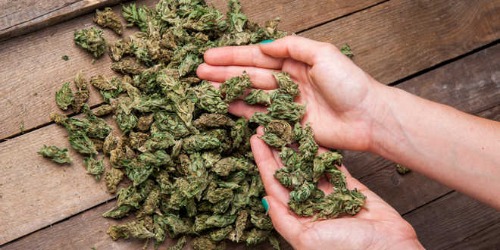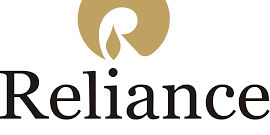Smoking pot in early teens ups drug abuse risk later

People who start smoking marijuana in the beginning of their teens are at a higher risk of having a drug abuse problem by the age of 28, a study has found.
Researchers from by Universite de Montreal in Canada suggest that found that children in primary school need to be educated about the risks of starting pot smoking, especially now that the potency is much greater than it was in decades past and that public acceptance is being spurred by legalisation in many places.
The study found that those who started smoking pot between the age of 15 and 17 were at 44 per cent higher risk of developing a drug abuse problem. However, the risk was higher at 68 per cent for those who started at an earlier age.
“The odds of developing any drug abuse symptoms by age 28 were reduced by 31 per cent for each year of delayed onset of cannabis use in adolescence,” researchers said.
For the study published in the Canadian Journal of Psychiatry, researchers looked at data for 1,030 boys from some of the city’s impoverished neighbourhoods begun in the early 1980s.
Every year between ages 13 and 17, the boys were asked if they had consumed cannabis at all in the previous year.
At 17, and again at 20 and 28, they were asked not only whether they consumed cannabis, but also other drugs, including hallucinogens, cocaine, amphetamines, barbiturates, tranquilisers, heroin and inhalants.
Then the data were correlated with the age at which they started using cannabis.
The results confirmed the researchers’ suspicions: the younger they started, the more likely the boys had a drug problem later as young men.
This is partly explained by the frequency with which they consumed cannabis and other drugs, but those who started before age 15 were at higher risk regardless of how often they consumed.
“The odds of developing any drug abuse symptoms by age 28 were non-significant if cannabis use had its onset at ages 15 to 17, but were significant and almost doubled each year if onset was before age 15,” researchers said.
Even if those who start smoking cannabis at 17 years were at lower risk, frequent users (20 or more times a year) at age 17 had almost double the chance of abuse by age 28 than occasional users.
The researchers also found that the earlier that boys were involved in gangs, drank alcohol, got into fights, stole or vandalised property, the earlier they used cannabis and the higher their odds of having drug abuse issues by 28.
Those who started drinking at 17 also were at higher risk of having an alcohol problem at 28.
The finding that starting pot smoking between ages 13 and 15 increases the odds of developing a drug problem later on makes it all the more important to prevent or reducing cannabis use as early as possible, researchers said.
“It may be important to implement these programmes by the end of elementary school to prevent early onset of cannabis use,” said Charlie Rioux, doctoral student at Universite de Montreal.
“Since peer influence and delinquency were identified as early risk factors for earlier cannabis onset and adult drug abuse, targeting these risk factors in prevention programs may be important, especially since prevention strategies working on the motivators of substance use have been shown to be effective,” said Rioux.
- 1
- Leave a comment
India mulls tariff hike on 20 US products

New Delhi :
In a retaliatory move, India has told the WTO that it proposes to raise duties by up to 100 per cent on 20 products such as almonds, apple and specific motorcycles imported from the US from next month, if Washington does not roll back high tariffs on certain steel and aluminium items.
The additional duty proposed to be hiked on these items ranges from 5 per cent to 100 per cent.
“India hereby notifies the Council for Trade in Goods of its decision to suspend concessions or other obligations ... that are substantially equivalent to the amount of trade affected by the measures imposed by the United States,” according to a communication by India to WTO.
It said the proposed suspension of concessions would be in the form of “an increase in tariffs on selected products originating in the US”.
It also said India reserves its right to further suspend substantially equivalent concessions and other obligations based on the measures of the US.
India has earlier urged the US to exempt it from the decision to raise import duties on certain steel and aluminium products.
The country has proposed this move under the WTO’s Agreement on Safeguards.
On March 9, US President Donald Trump imposed heavy tariffs on imported steel and aluminium items, a move that has sparked fears of a global trade war.
Trump signed two proclamations that levied a 25 per cent tariff on steel and a 10 per cent tariff on aluminium imported from all countries except Canada and Mexico.
“The suspension will come into effect earlier than June 21, 2018, in case the US decides to continue the period of application of the measures...The suspension of concessions will continue to apply until the United States’ safeguard measures are lifted,” it added.
India has also stated that America imposed definitive safeguard measures without giving affected members any opportunity for consultations.
“India wishes to clarify that suspension of concessions shall be equivalent to the amount of trade affected by the US’s measures. To this end, India reserves the right to adjust the specific products for which suspension of concessions is effectuated, and its right to adjust the additional rate of duty imposed on such products,” it said.
The country has said the duty imposed by America has affected steel exports by $134.4 million, while the same on aluminium was $31.16 million.
The 20 items include peas, chickpeas, fresh apple, walnut, soybean oil, refined palmolein, coco powder, chocolate products, golf car, motorcycle with engine capacity over 800 cc and other goods vehicles, with spark-ignition internal combustion piston engine. The US has however stated that the duty hike by Trump administration is not a safeguard measure.
India has also dragged the US to the World Trade Organisation’s dispute settlement mechanism over the imposition of import duties on steel and aluminium.
India has stated that the decision will impact exports of these products to the US and it is not in compliance with global trade norms. India’s exports of steel and aluminium products to America stood at about $1.5 billion every year. India’s exports to the US in 2016-17 stood at $42.21 billion, while imports were $22.3 billion.
Indian firms grappling to comply with upcoming EU data privacy law

New Delhi :
As the European Union (EU) gets ready to implement the much-awaited General Data Protection Regulation (GDPR) to harmonise data privacy laws for its citizens from May 25, most of the Indian organisations are still grappling to comply with the stringent regulation.
Containing 99 articles and 173 recitals, GDPR has key requirements that directly impact the way organisations implement IT security, thus addressing the key security tenets of confidentiality, integrity and availability of data.
According to the latest forensic data analytics survey by Ernst & Young (EY), only 13 per cent of the Indian firms have a plan to comply with GDPR by May 25.
As India is not present in the list of countries approved for data portability and transfer, GDPR poses an extra challenge for domestic firms that operate in the EU.
“It is imperative for Indian firms to plan and continue their journey towards compliance even after May 25, to ensure continuity of business within the EU and avoid hefty penalties because of non-compliance,” Jaspreet Singh, Partner-Cyber Security, EY, told IANS.
For Ramesh Vantipalli, Director Systems Engineering, End User Computing, VMware India, the challenge for the Indian organisations facing the GDPR is ubiquitous data which will only increase exponentially in future.
“For Indian companies with operations in the EU, data security measures will now have to work alongside legal and compliance teams to ensure maximum adherence to GDPR,” Vantipalli told IANS.
“Fortunately, the transition will take place over some time and not overnight, giving Indian companies enough time to get their GDPR strategy in place,” he added.
With data privacy concerns on the rise and stringent regulatory requirements like GDPR coming into force, organisations have no choice but to redefine the way they approach data management.
“Organisations should realise that GDPR is about more than just data; it’s necessitating a new playbook for businesses to engage with people,” stressed Akshay Aggarwal, Director, Solution Specialist, Oracle India.
Non-compliance with GDPR can result in heavy fines and increased regulatory actions.
“Organisations that collect personal data must be able to prove that they consistently and reliably comply with GDPR privacy and security principles. We’re actively working with several Indian businesses in this regard,” Aggarwal told IANS.
A new study from IBM reveals that nearly 60 per cent of organisations surveyed are embracing the GDPR globally as an opportunity to improve privacy, security, data management or as catalyst for new business models, rather than simply a compliance issue or impediment.
GDPR is a fairly complex piece of legislation with far reaching impact not just within the EU but across the world.
“Indian companies operating in the EU will have to change the way they capture, process and use data of EU nationals. It is a complicated process involving in-depth understanding of privacy laws and policies,” said Prajit Nair, Director Sales-End User Computing, VMware India.
Technology alone cannot help organisations understand and transition to GDPR, but it will be a crucial enabler.
“Indian companies must put in place a comprehensive strategy involving legal, compliance and IT departments to ensure complete adherence to the GDPR laws, as well as a proactive plan to address breaches and leaks,” Nair told IANS.
In fact, the post-GDPR world will see a much closer integration of the law and technology as organisations work out their data protection strategies.
According to George Chang, Vice President-APAC of cyber-security firm Forcepoint, India’s Data Protection Law, when comes into effect, will sure have a major impact on business operations.
“Organisations in India need to place compliance and data security as a priority considering the cost for violating these privacy laws is about to get very expensive. GDPR can cost up to 20 million Euros or 4 per cent of annual turnover, whichever is higher, for intentional or negligent violations,” Chang informed.
“With those kinds of stakes, investing in compliance now is the only right move for a sustainable business model,” he added.
According to Richard Hogg, Global GDPR and Governance Offerings Evangelist, IBM, GDPR applies to all the personal data of any employee or customer who are in Europe.
“Whether they are citizens or temporary residences and live there, are just passing through an EU airport for 30 minutes. During this time, potentially GDPR applies to their personal data.
“GDPR really does have extra-territorial scope. Additionally, it can apply to anyone’s personal data, if you are actively marketing or profiling them From Europe, wherever they are in the world,” Hogg told IANS.
As the clock ticks down to the deadline to comply with the new GDPR regulations, the Indian firms need to enact strict data protection regulations.
“With strong data protection strategies in place, customers will place greater confidence in businesses, and businesses will minimise the financial fall-out of a breach,” Chang said.
RIL profit jumps 17.3% to Rs 9,435 cr

New Delhi : Reliance Industries (RIL) on Friday reported a 17.3% jump in its fourth quarter net profit on the back of robust petrochemical margins and upstart telecom arm Jio’s maiden profits. Its net profit of Rs 9,435 crore, or Rs 15.9 per share, in January-March was 17.3% higher than Rs 8,046 crore, or Rs 13.6 a share, posted in the same period a year ago. On a sequential basis, the company’s net profit rise was only 0.1 per cent, the company said. The company, however, reported a record net profit of Rs 36,075 crore for the 2017-18 fiscal, up 20.6%. The firm’s telecom arm, Jio, reported a net profit of Rs 510 crore (on a quarterly basis) in the fourth quarter on revenue of Rs 7,128 crore.
Maruti Suzuki net up 10% at Rs1,882 cr in March qtr
Country’s largest carmaker Maruti Suzuki India on Friday reported 10% rise in net profit at Rs 1,882.1 crore for the March quarter even as tax expenses went up.The company had posted a net profit of Rs 1,710.5 crore in January-March, 2016-17. Net sales during the reported quarter rose to Rs 20,594.3 crore, up 14.4% against the year-ago period.For the full year ended March 31, the company posted its highest ever annual net profit of Rs 7,721.8 crore, up 5.1% from Rs 7,350.2 crore in the previous year. Net sales in 2017-18 stood at Rs 78,104.8 crore, up 16.7% from 2016-17.
India likely to clock 7.5% growth in FY19: Deutsche Bank

New Delhi : The Indian economy is witnessing a “cyclical upswing” and the country is likely clock a GDP growth of 7.5 per cent this financial year, says a Deutsche Bank research report.
“Our current growth forecast for 2018-19 is 7.5 per cent (RBI estimate is 7.4 per cent), which will mark an improvement from the 6.7 per cent likely outturn in 2017-18,” the global financial services major said.
The Reserve Bank expects India’s economic growth rate to strengthen to 7.4 per cent in the current fiscal, from 6.6 per cent in 2017-18, on account of revival in investment activity.
The report, however, noted that higher global oil prices, risk of an earlier than anticipated rate hike cycle from the RBI and the potential negative impact of the banking sector frauds on credit and overall growth are some of the factors that pose downside risk to its baseline GDP estimate.
Brent crude prices are currently hovering around USD 75 a barrel, which is up 12 per cent from end December 2017 levels.
According to the Deutsche Bank research report, a USD 10 increase in oil prices can shave off growth by about 10 bps while other factors pose about 15-20 bps additional downside risks.
Notwithstanding the fact that higher oil prices can potentially slow the pace of recovery, economic momentum will continue to improve “sequentially in 2018-19 and beyond”, the report noted.
“Capacity utilisation has started to improve, which should incentivise private sector capex recovery with a lag, GST collections have picked up thanks to the implementation of e-way bill, NPA resolution is underway and the government is likely to remain focused on pushing infrastructure investment, which should bode well for the growth outlook going forward,” the report added.


